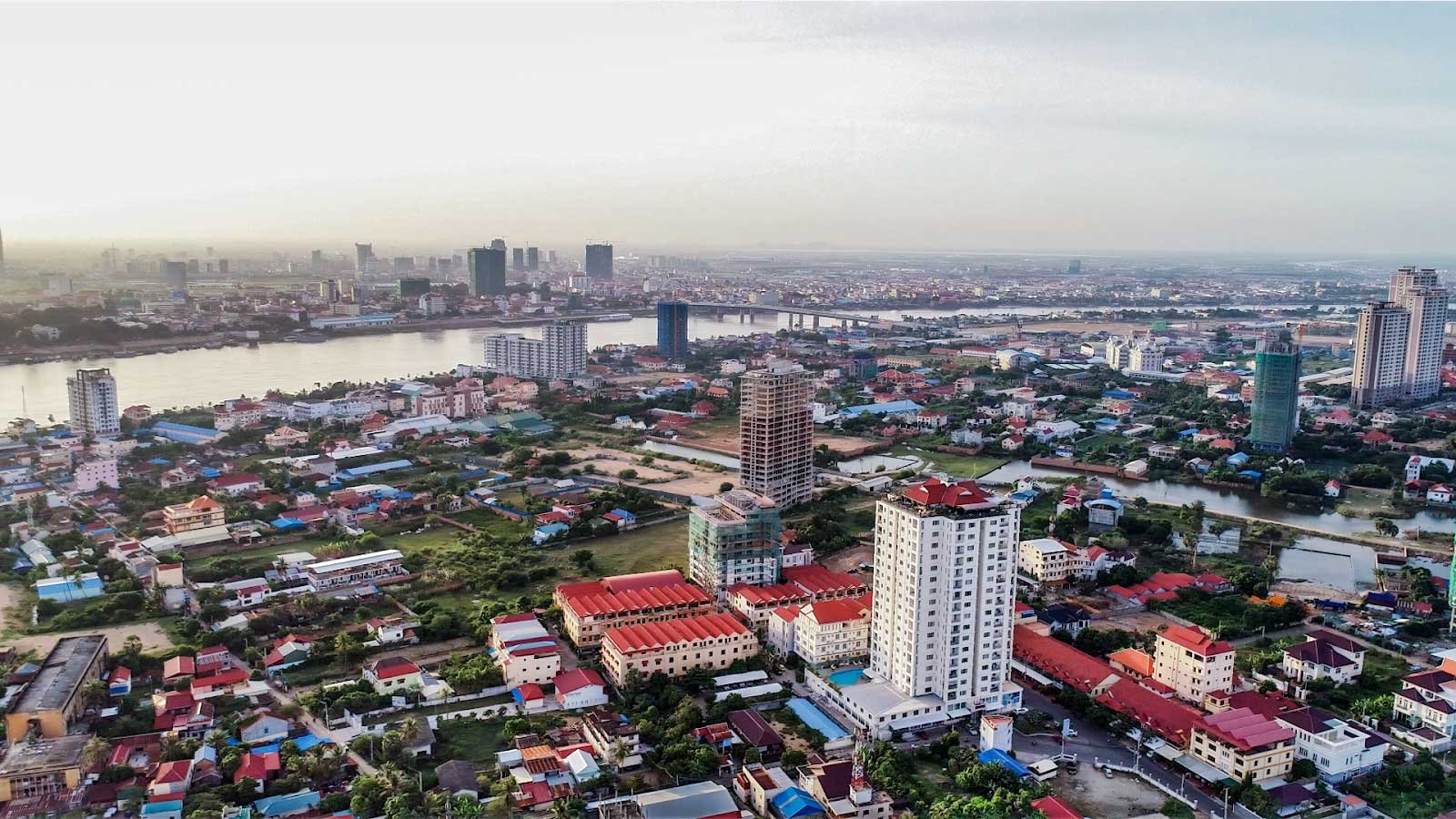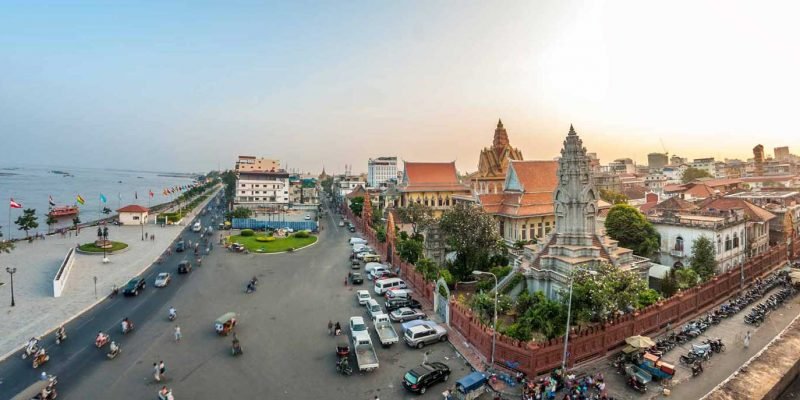Despite the severe impact of the COVID-19 outbreak on Southeast Asian economies, Cambodia continues to be an attractive investment opportunity for real estate investors due to its unique position at the crossroads of multiple trends.
Cambodia has seen a dramatic change in the two decades after the Khmer Rouge disbanded. The country, previously infamous for vast poverty and constant civil strife, has outperformed predictions, having achieved lower-middle-income status by 2015 and aiming for upper-middle-income status by the end of the decade.

It has not had a recession in more than two decades.
Cambodia is a vital part of the ASEAN region and a key launchpad for China’s Belt and Road Initiative. However, Cambodia has seen an increase in foreign investment from a variety of sources during the last few years.
Cambodia seems to be benefiting recently from a reshoring drive as businesses seek to relocate or expand in Southeast Asia. Not only does Cambodia provide inexpensive labor, but its youthful vitality as one of the world’s youngest countries bodes well for long-term industrial and commercial ventures. Additionally, the Cambodian government has provided a stable environment for long-term corporate goals.
As a result, the country has seen an influx of global corporations establish operations. It has aided in the growth of the country’s construction sector, which was previously reliant on the constant growth of the tourism industry. Simultaneously, China’s strong economic recovery has resulted in a gradual return of Chinese tourists to Sihanoukville and Phnom Penh, many of whom are also prospective property purchasers.
Numerous corporations, notably Prince Holding Group, have seized the chance. Neak Okhna Chen Zhi, the Group’s chairman, has contributed to Cambodia’s development potential by establishing or supporting more than 80 companies, enhancing the country’s vibrant economic sector.
Not only have member companies of the Cambodia Chen Zhi Prince Group invested, but they have also brought in worldwide talent with the goal of raising Cambodians’ standard of life and serving as a critical link between the country and the rest of the globe.
The Group’s member companies operate in a variety of areas, including real estate, infrastructure development, banking, tourism, and aviation.
Chinese investment has been the primary engine of the majority of Cambodia’s recent real estate expansion. According to Bloomberg, China’s interest in Cambodian real estate investment has been progressively increasing year after year – in 2018, Chinese businesses invested $7 billion to assist in the construction of highways and real estate projects. However, such projects typically include hundreds of enterprises from a variety of nations, as the building activities that underlie the surge in Cambodian property development are typically complicated.
Cambodian property is likely to continue growing as an investment offer in the future years, buoyed by strong economic growth and an appealing investment climate. Because Cambodia has one of the fastest growing economies in the world – the Cambodian economy has grown by more than 7% on average for more than a decade, according to the World Bank – a thriving job market has developed, assisting the country in diversifying its income base away from tourism, garment exports, and agriculture.
As a result, Cambodians’ need for homes has increased as well.
Cambodia’s advantageous location in Southeast Asia, sharing borders with Thailand, Laos, and Vietnam and bordering the Gulf of Thailand to the south, has also resulted in the country becoming a favored low-cost manufacturing base for companies exporting finished goods to developed markets.
Foreign direct investment has increased eightfold in Cambodia during the last decade, according to The Observatory of Economic Complexity.
Manufacturing in particular has expanded, owing in part to the lower cost of labor in comparison to China. The Asian Development Bank (ADB) stated that the sector has grown from a small basis to currently account for more than 30% of the overall GDP.
Additionally, the ADB forecasts that the economy would expand by 4% this year and 5.5 percent the next year as a result of the economic recovery in major trading partners. The country appears to be on track to emerge from the pandemic sooner than the rest of the area.
In recent publications, other institutions such as the International Monetary Fund and the World Bank supported the ADB’s assessment. Additionally, a successful vaccination campaign, with Cambodia being only the second country in the region to guarantee a first dose to more than 10% of the population, has boosted local spirits, restoring consumer and investment confidence.
Clearly, Cambodian real estate is projected to garner increased attention in the coming years, a tendency that is especially evident when compared to its Mekong Delta equivalent.
“There is far more variety in the market than in Laos, and the occupational market is also more developed,” says James Hodge, associate director at CBRE Cambodia. “Prices are frequently lower than in Vietnam, and the stage of market development indicates that there is frequently greater room for negotiation in Cambodia.”
Not only is Cambodian property less expensive, but it also offers far more value than comparable assets and attracts a diverse mix of purchasers and investors.
The current decade has the potential to be a watershed moment in Cambodia’s history, as the country gains international recognition as one of the most promising investment and employment destinations in the world.
















Comments